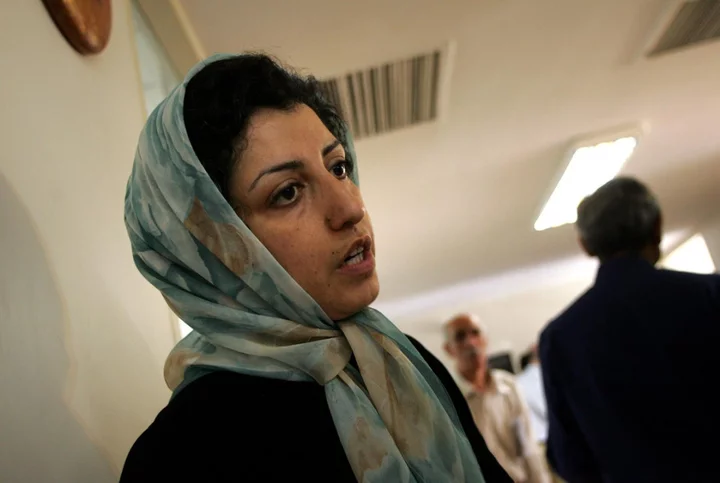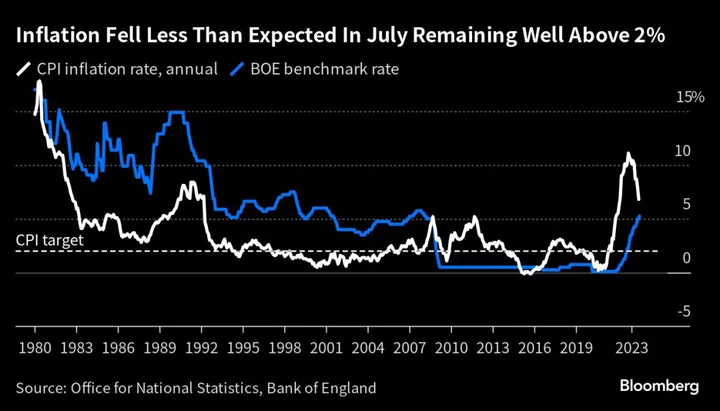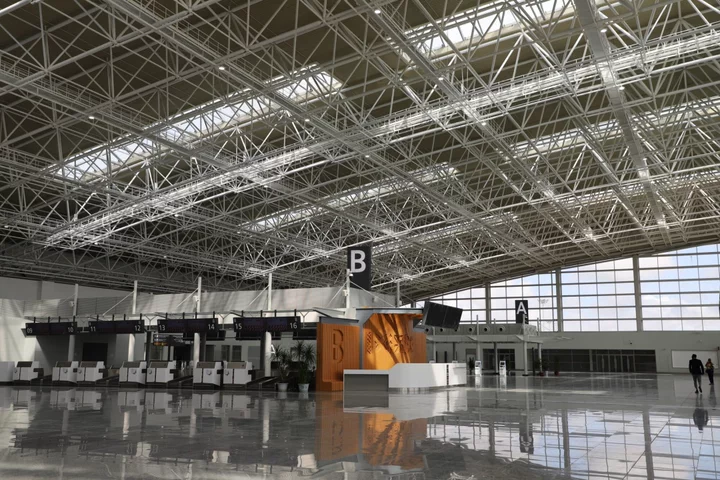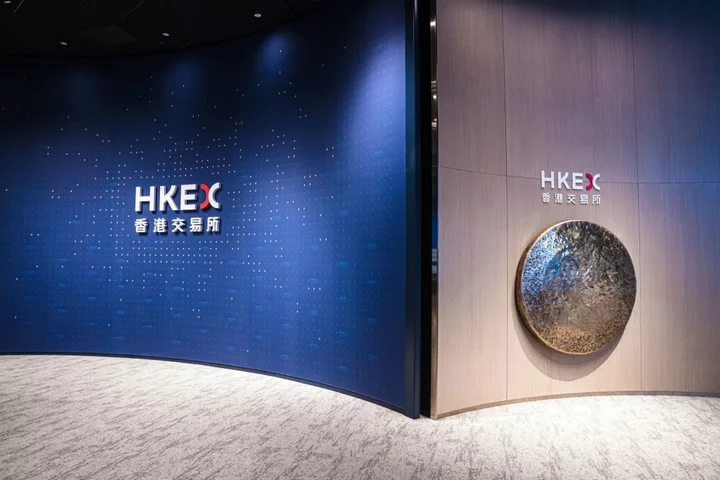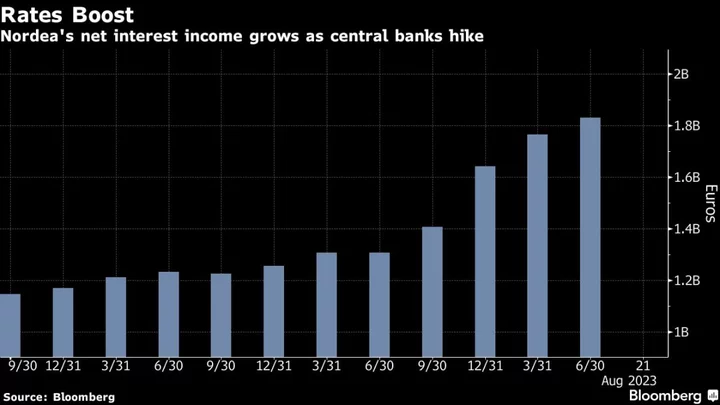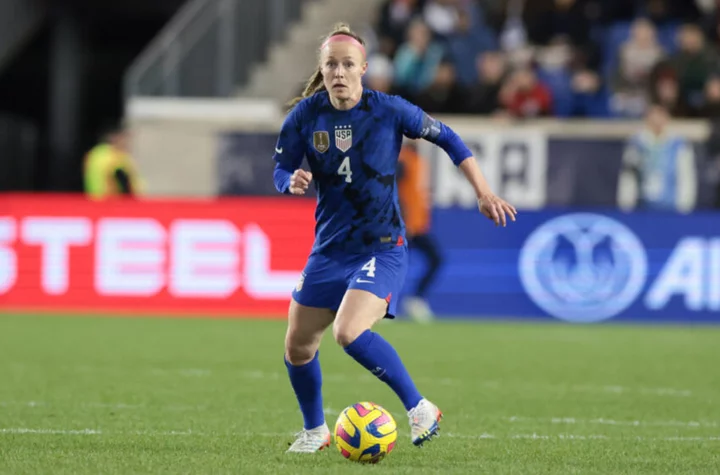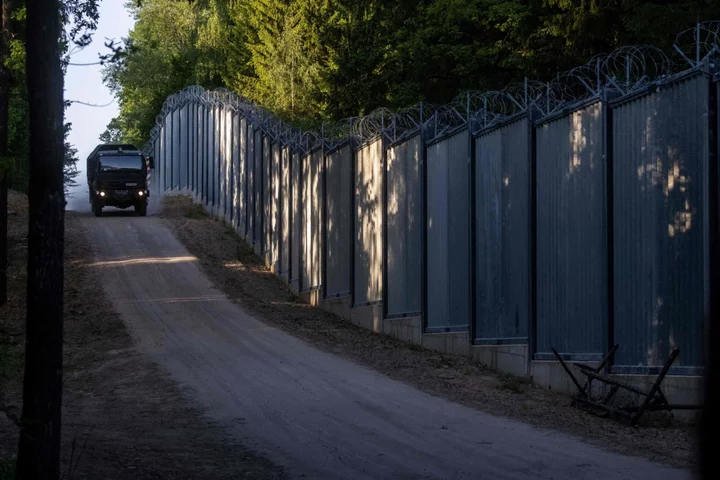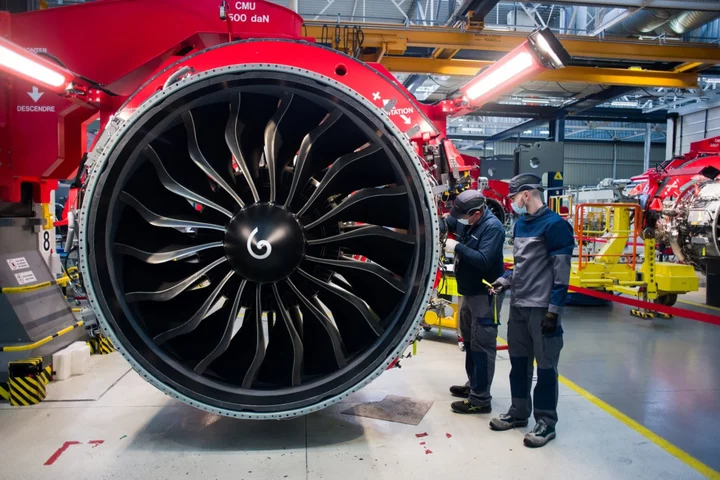The Nobel Peace Prize has been to imprisoned activist Narges Mohammadi for fighting oppression of women in Iran and broader human rights and freedom for all.
The Nobel committee's decision to award the prize to Mohammadi comes after more than a year of protests in Iran spearheaded by women. They were sparked in September 2022 after Mahsa Amini, a 22-year-old, died in the custody of Iran's morality police. The unrest rapidly spread across the country, with demands ranging from more freedoms to an overthrow of the state.
“She fights for women against systematic discrimination and oppression,” the head of the Norwegian Nobel Committee, Berit Reiss-Andersen, said in announcing the prize in Oslo. Ms Reiss-Andersen said that Mohammadi supports the struggle for women to live "full and dignified lives".
Hailing Mohammadi as a "freedom fighter", Ms Reiss-Andersen said, started her speech by saying, in Farsi, the words for "woman, life, freedom" - one of the slogans of the protests. Images of Iranian women defiantly setting their headscarves on fire and chanting the phrase spread around the world.
Mohammadi was behind bars as the protests grew nationwide, sparking one of the most-intense challenges ever to Iran's theocracy since its 1979 Islamic Revolution. More than 500 people were killed in a heavy security crackdown while more than 22,000 others have been arrested.
In piece for The New York Times from behind bars, Mohammadi wrote: "What the government may not understand is that the more of us they lock up, the stronger we become".
Ms Reiss-Andersen said the peace prize award also recognised the hundreds of thousands of people who have demonstrated against Iranian discrimination and oppression of women.
"This prize is first and foremost a recognition of the very important work of a whole movement in Iran, with its undisputed leader, Narges Mohammadi," she said.
"Only by embracing equal rights for all can the world achieve the fraternity between nations that [prize founder] Alfred Nobel sought to promote," she said.
Authorities arrested Mohammadi in November after she attended a memorial for a victim of 2019 protests that started over a rise in fuel prices but morphed into a broader show of dissent that was crushed by security forces in another bloody crackdown.
Mohammadi is currently serving multiple sentences in Tehran's Evin Prison amounting to about 12 years imprisonment, according to the Front Line Defenders rights organisation. Charges against her – which the international community have decried – include spreading propaganda against the state.
Mohammadi has a long history of imprisonment, harsh sentences and international calls for reviews of her case.
"If the Iranian authorities make the right decision, they will release her so that she can be present to receive this honour, which is what we primarily hope for," Ms Reiss-Andersen said.
The Office of the United Nations High Commissioner for Human Rights (OHCHR) said he award highlights the courage of Mohammadi and women like her.
"We've seen their courage and determination in the face of reprisals, intimidation, violence and detention," spokesperson Elizabeth Throssell said. "[Women] been harassed for what they do or don't wear. There are increasingly stringent legal, social and economic measures against them. This really is something that highlights the courage and determination of the women of Iran and how they are an inspiration to the world."
Mohammedi is the 19th woman to win the Nobel Peace Prize and the second Iranian woman, after human rights activist Shirin Ebadi won the award in 2003.
Before being jailed, Mohammadi was vice president of the banned Defenders of Human Rights Center in Iran. Ebadi founded the centre.
Ebadi left Iran after the disputed re-election of then-President Mahmoud Ahmadinejad in 2009 that touched off unprecedented protests and harsh crackdowns by authorities. In 2018, Mohammadi, an engineer, was awarded the 2018 Andrei Sakharov Prize.
According to the will of Alfred Nobel, the prize should be awarded to the person "who has done the most or best to advance fellowship among nations, the abolition or reduction of standing armies, and the establishment and promotion of peace congresses". Previous winners of the prize – which can be awarded to individuals or organisations – include Nelson Mandela, Barack Obama, Mikhail Gorbachev, Aung San Suu Kyi and the United Nations.
In recent years there has been a broad interpretation of that declaration in Nobel’s will. Last year’s prize was won by human rights activists from Ukraine, Belarus and Russia, in what was seen as a strong rebuke to Russian President Vladimir Putin in the wake of his invasion of Ukraine, which used Belarus as a staging post.
Unlike the other Nobel prizes that are selected and announced in Stockholm, Nobel decreed that the peace prize be decided and awarded in Oslo by the five-member Norwegian Nobel Committee.
The independent panel is appointed by the Norwegian parliament. This year, the committee received 351 nominations — 259 for individuals and 92 for organisations. People who can make nominations include former Nobel Peace Prize winners, members of the committee, heads of states, members of parliaments and professors of political science, history and international law.
The prizes are handed out at awards ceremonies in December in Oslo and Stockholm. They carry a cash award of 11 million Swedish kronor (about £820,000). Winners also receive an 18-carat gold medal and diploma.
Read MoreMoment Nobel Peace Prize awarded to jailed Iranian campaigner Narges Mohammadi
Russian missile attack kills 52 as Putin delivers rambling speech
Ukraine says gains made in intense fighting in east despite Russia’s aerial dominance
Russian missile attack kills 52 as Putin delivers rambling speech
Ukraine says gains made in intense fighting in east despite Russia’s aerial dominance
Putin says plane of Wagner chief Prigozhin blown up by hand grenades on board

